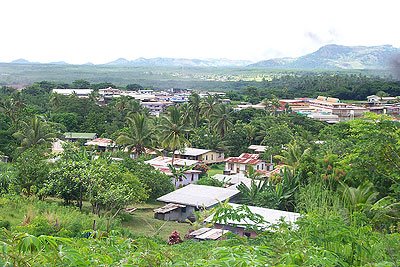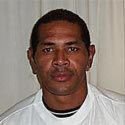


from Peceli
Naseakula village has changed from beautiful Fijian traditional bures to concrete iron roofed houses. I want to write about Meliki Baleicakau and rugby.
I still remember when I was young boy we used to bath or fetch water from Naseakula creek during the drought season Our home was called Valeniveilewai and Meliki’s home was Mavule not very far from one another. Their kitchen was close to where the big lovos were made for feasts and there were many functions in Naseakula. When a cow was killed the boys would get the cow's bladder, clean it and blow it up and kick it around as a football. Barefoot of course. Meliki’s father was a very strict man and his name was Tavusa and he was a very strong man.
In those days soccer was the main sport for boys and rugby was just starting then. Soccer was played in Labasa town every Saturday then. “We always thought that only the people who are well educated should play rugby,” Meliki said. Because of the slow development in Labasa, it wasn’t until around 1950 that people started to take rugby seriously. In 1951, Nasekula Rugby Club was founded.
A decade later, national team captain Apakuki Tuitavua paid a visit to the Friendly North, and the following year, Meliki became the first player from the Labasa area to win a Test cap.
Because Naseakula is close to the town, some of the village boys got into trouble because the families got lease money and they did not have to work hard for their education. It was good when they played rugby to use their energy.
Meliki Baleicakau is the father of national 15s and 7s rep Jope Tuikabe. Jope Tuikabe who has won national honours at both 15s and 7s. Tuikabe played for Nasekula during his early days. This year Jope is a Fiji champion and has played in the Hong Kong Sevens.
No comments:
Post a Comment